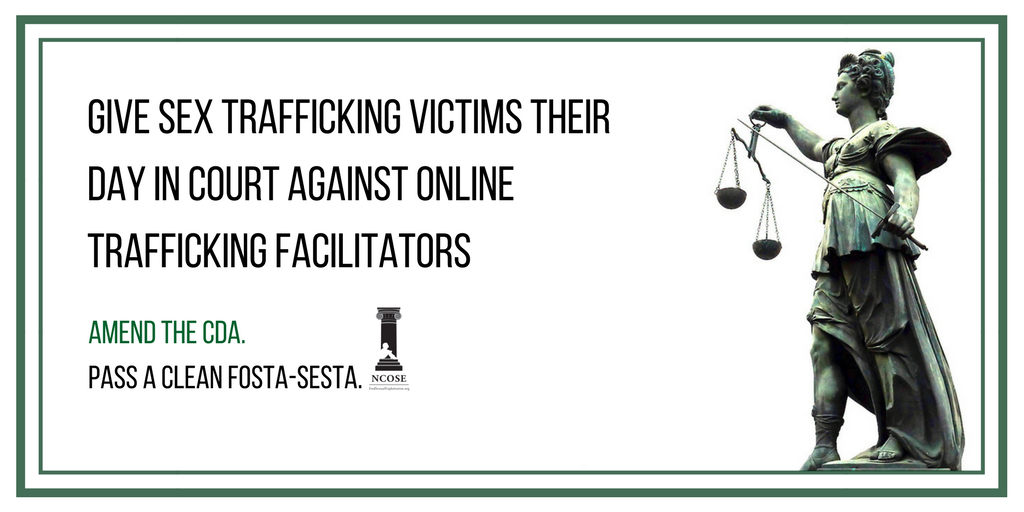
Is the online sex trafficking era about to meet the ‘delete’ key?
This article originally appeared on FoxNews.com. Across the web, online administrators are hitting “delete” on sex ads. Several websites built solely around prostitution and sex

This article originally appeared on FoxNews.com. Across the web, online administrators are hitting “delete” on sex ads. Several websites built solely around prostitution and sex

To all of our supporters and activists, thank you for your advocacy and your participation in our mission to end all forms of sexual exploitation.

The Senate is expected to vote early next week on H.R. 1865—legislation known as FOSTA-SESTA. This legislation restores civil rights of action to victims of

Today the world will observe International Women’s Day with rallies, marches, and forums about policy issues impacting the lives and wellbeing of women. While we

It is absolutely essential that the United States Senate pass H.R. 1865, FOSTA-SESTA, the week of March 12 to amend the Communications Decency Act Section

Haley Halverson, Vice President of Advocacy and Outreach at the National Center on Sexual Exploitation, published an article in the University of Rhode Island’s Dignity Journal

Tomorrow the U.S. House of Representatives is scheduled to vote on a legislative package to fight online sex trafficking. The House will take up H.R. 1865 the Allow

Next week, the House is expected to vote on legislation introduced by Rep. Ann Wagner, the Allow States and Victims to Fight Online Sex Trafficking Act

In the midst of all the buzz about #metoo, I find it surprising that many of these people who are standing up for women who

The #MeToo movement has brought much-needed attention to a pervasive problem — sexual harassment and abuse. Recent photos of Colbie Holderness’ black eye, the resignation

A national organization is calling out the media, entertainment figures, and corporations for normalizing sexual exploitation. In doing so, it hopes to inspire Americans to

Amazon’s status as a sales and television giant is no secret, but what is less obvious is the complacency with which it treats video content